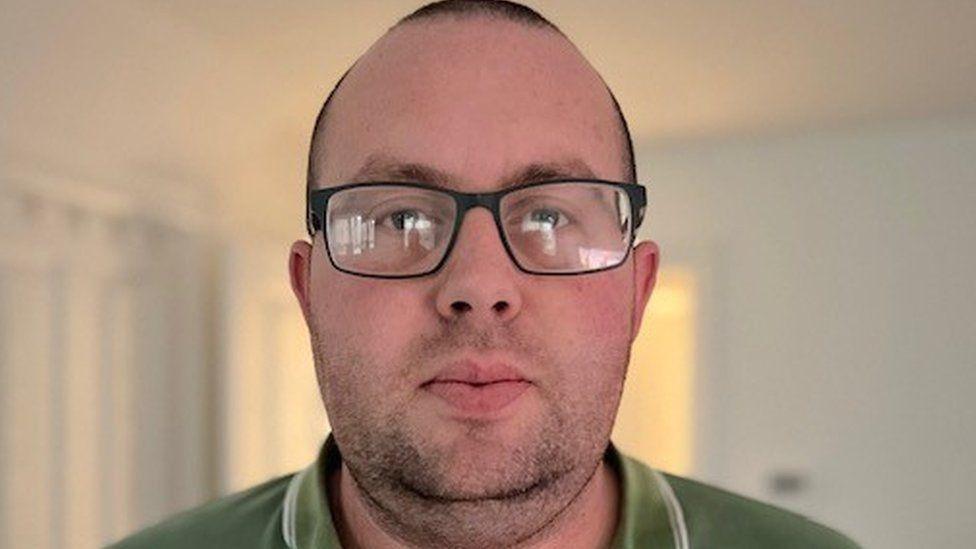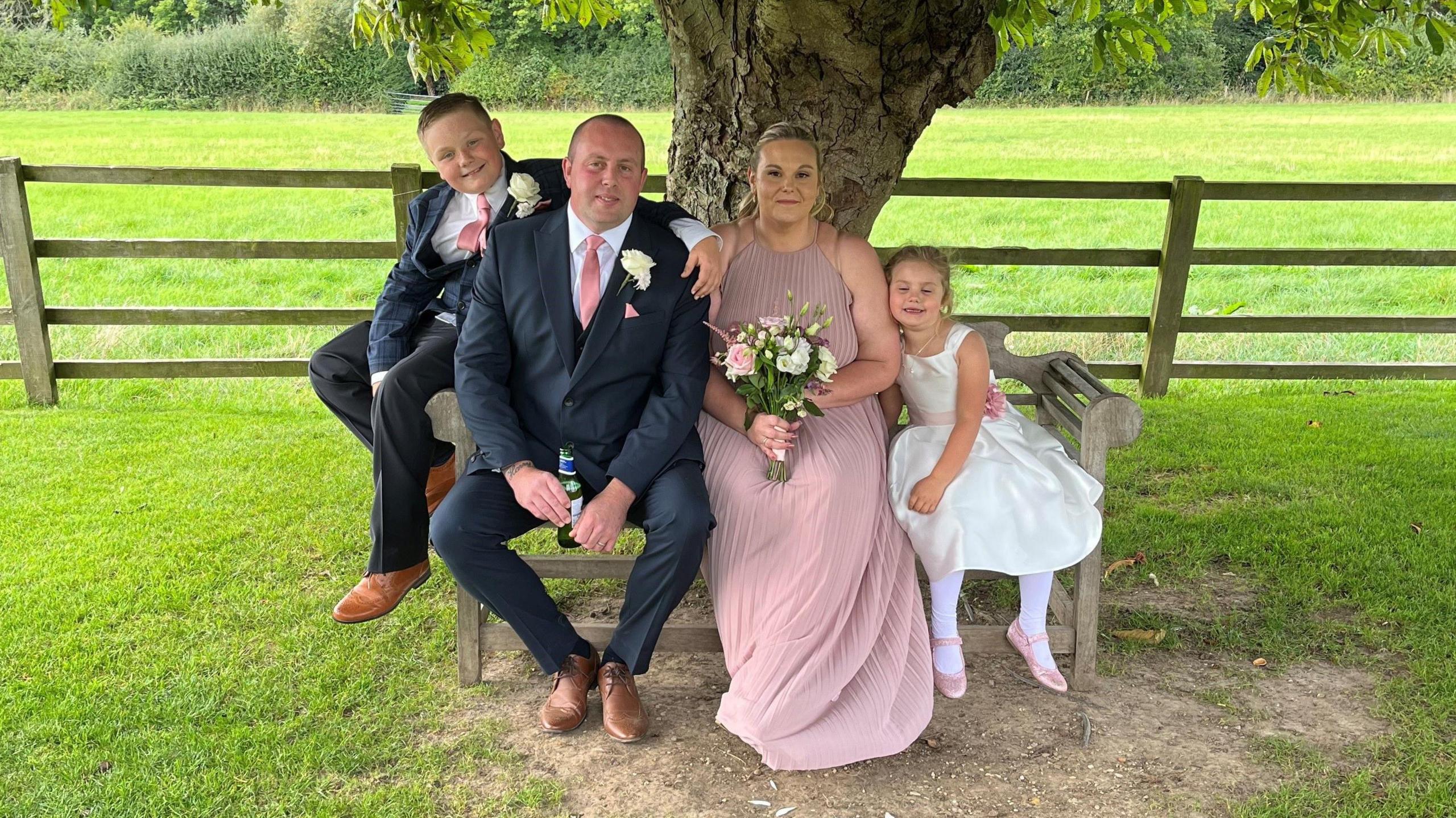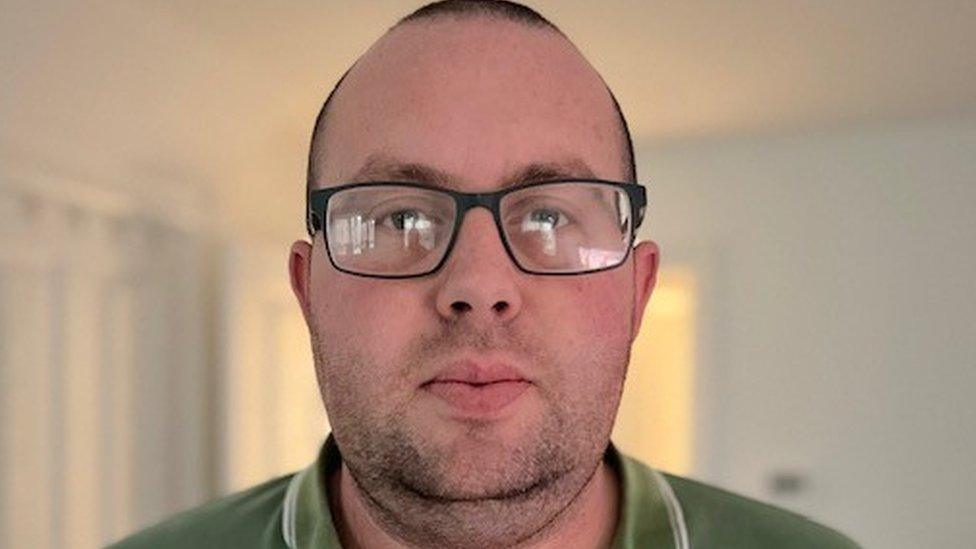Benefits reject 'worried about feeding his family'

Ashley Hall's illness gives him severe diarrhoea and he often only gets two hours sleep a night
- Published
A man who was turned down for disability benefits twice, despite having a chronic stomach condition, has told family members he is worried about how he will feed his children.
Type 1 diabetic Ashley Hall, from Witney, Oxfordshire, was signed off work with intestinal pain and later diagnosed with bile acid malabsorption.
A tribunal took his side after he was initially told he was not eligible for personal independence payments (PIP).
But the Department for Work and Pensions (DWP) has now appealed this decision, leaving him without an income. It has been contacted for comment.

Mr Hall worked as a delivery driver to support his wife and family
About three years ago, after suffering with bouts of stomach pain, Mr Hall quit his job at a water company and took on work as a delivery driver, which offered shorter shifts.
The pain became worse, which led to his GP signing him off work in May 2023.
The 36-year-old was diagnosed with bile acid malabsorption the following December, which gave him severe diarrhoea and prevented his body from absorbing nutrients.
'Constantly in pain'
The father-of-two previously told the BBC: "I can spend six hours a day on the toilet. I wouldn't employ me on that and the doctors have said I'm not able to work."
"I'm constantly in pain and tired all the time because I get about two hours sleep a night with it," he added.
DWP rejected his claim for financial aid, a decision Mr Hall successfully challenged after several months.
On 8 October, a tribunal ruled he would receive the standard rate of PIP - about £100 a week.
But he then received a letter in the post stating the DWP was making an appeal, a process which could take up to a year.
What is PIP?
Personal independence payment (PIP) is a government benefit for people in the UK with long-term health conditions, which can be physical, sensory, mental, cognitive or intellectual.
First introduced in 2013, it aims to help cover extra costs, external that disabled people may face.
The assessment for PIP looks at an individual’s ability to carry out a series of everyday activities, like cooking, washing and managing toilet needs.
It is not means tested, meaning you do not have to earn under a certain threshold to be eligible.
More than 3.3 million people, external across the country claim the disability benefit.
'Cannot think straight'
Mr Hall told his step-father, Barry Jessle, that he was "worried about feeding his family".
"I've not seen him as low as this, ever," Mr Jessle said, adding: "His mindset is absolutely blown, he literally cannot think straight at the moment."
Mr Hall will continue to live without an income until the results of DWP's appeal.
His wife is a full-time carer to one of their children, who also suffers from Type 1 diabetes, and the couple receive universal credit, which Mr Hall said only covered the rent and bills.
Mr Jessle added: "He's always worked, he's paid into the system... and here we are, he can't get anything out of the system."
Get in touch
Do you have a story BBC Oxfordshire should cover?
You can follow BBC Oxfordshire on Facebook, external, X (Twitter), external, or Instagram, external.
Related topics
- Published12 January 2024
